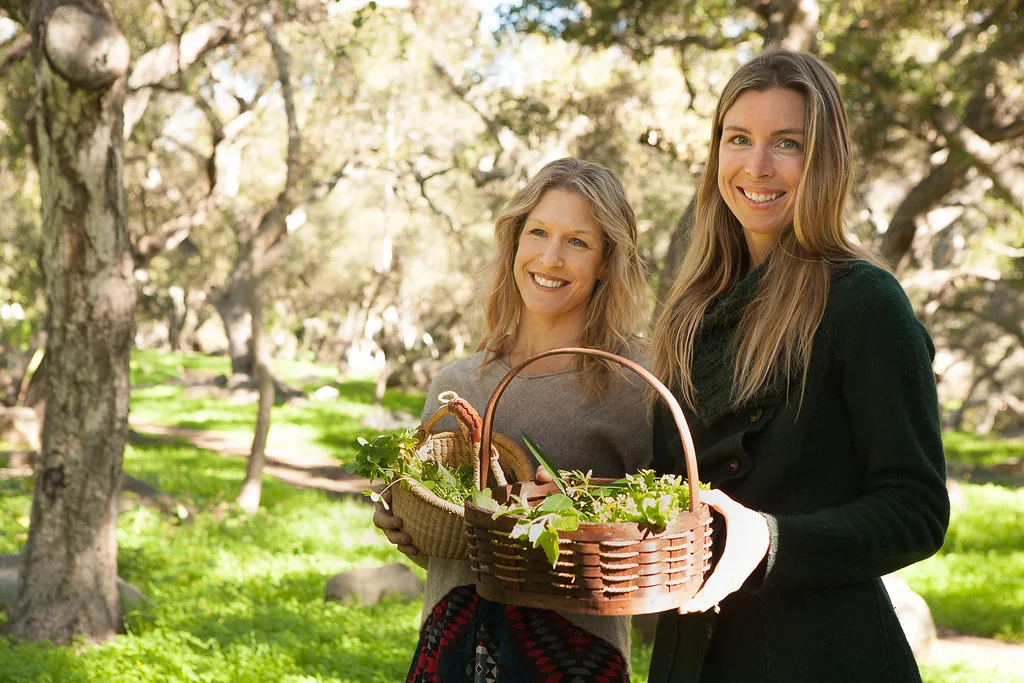Respectful Foraging
When delicious, fresh food is so readily available at the local supermarket and farmers' markets, why make the extra effort to look for food out in nature? Personally, I forage because I enjoy spending time outside - hiking, walking, biking and playing with my kids. I think foraging is appealing as well, because it taps into an ancestral part of us, when hunting and gathering were essential for our survival. It feels meaningful to feed ourselves with food we have harvested ourselves. We use all of our senses to identify the plants and assess our surroundings. It is such a fun way to spend time with friends and children, and presents a delightful challenge to incorporate these new foods into our diets.
Foraging has multiplied in popularity, even in the last year or two. I think this is wonderful! But it also has the potential to make a negative impact on our environment. Think how desolate all of our beautiful land would look if everyone were allowed to take whatever he or she wanted, without restraint. This can be allayed by following some general rules and ethics of foraging, and what I think of as being respectful. If we are respectful, we honor the law, the land, the plant, and ourselves.
Honoring the law involves ensuring we have permission to harvest plants before doing so. In some places, you may have permission to pull plants considered weeds, such as fennel or plantain, but may have to leave native plants, such as black sage, alone. Check with your local parks and forestry to make sure.
Watch our foraging Video with Ashley and Emma!
Honoring the land means leaving the land in the same, or an even better condition than when you found it. If you see garbage on the trail, pick it up. Don't harvest directly on the trail, or in a place that others enjoying the space will be frequenting. Someone coming along after you should not be able to even notice that you have taken any plants. Some people, including myself, like to leave an offering of song or tobacco as a symbol of appreciation and respect to the land and the plants.
Honoring the plant means taking only what you need. This is so important! Never harvest more than you are actually going to use. It also means harvesting the smallest amount from many plants, versus harvesting a large amount from one or just a few plants. Never take more than 10% of one plant, and never take from more than 10% of a stand of plants. If there is a stand of 100 plants, do not harvest from more than 10 of them. This ensures the plant population will be able to regrow and recover. Do not her best from a plant that is looking sickly or unhealthy. It is also important to bring a pair of clippers or a sharp knife, rather than pulling leaves off of a plant. A clean cut will heal more quickly than a ragged tear.
Lastly, honoring yourself means using caution when foraging. Do not forage in a place that could be dangerous, either because of wildlife or toxic materials in the environment. Most importantly, always be 100% sure you have identified the plant correctly before consuming or even touching it. Use at least three good plant identification books written specifically for your area. Bringing a friend along with you makes foraging more fun and is another way to be safe.
If we are respectful, and keep all of these guidelines in mind, we will all be able to enjoy many years of foraging in our futures, as will our children.
Green Blessings!
Love, Ashley
Images by Brittany Smith
Video by Nicole Halabisky




